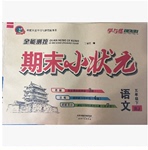题目内容
.(2011·全国II)C
Student Membership-----Cambridge Arts Cinema
Cambridge Arts Cinema is one of the art houses in Britain and home of the internationally celebrated Cambridge Film Festival. Since 1947 generations of students have discovered the wealth of world cinema. Now you too can make most of it and save money.

48. Which of the following is the most famous event held at Cambridge Arts Cinema?
A. The Cambridge Film Festival.
B. Meetings with filmmakers.
C. The preview screening.
D. Monthly premieres.
49. If you're a member of Cambridge Arts Cinema, you will enjoy free_
A. Darkroom Gallery shows
B. mailed programmes
C. special film events
D. film shows
50. How long will the membership for Cambridge Arts Cinema last?
A. Four months. B. Eight months.
C. Nine months. D. One year.
51.For what purpose is the text written?
A. Offering students cheaper tickets.
B. Announcing the opening of a premiere.
C. Telling the public of the cinema's address.
D. Increasing the cinema's membership.
【答案】ABCD

 全能测控期末小状元系列答案
全能测控期末小状元系列答案